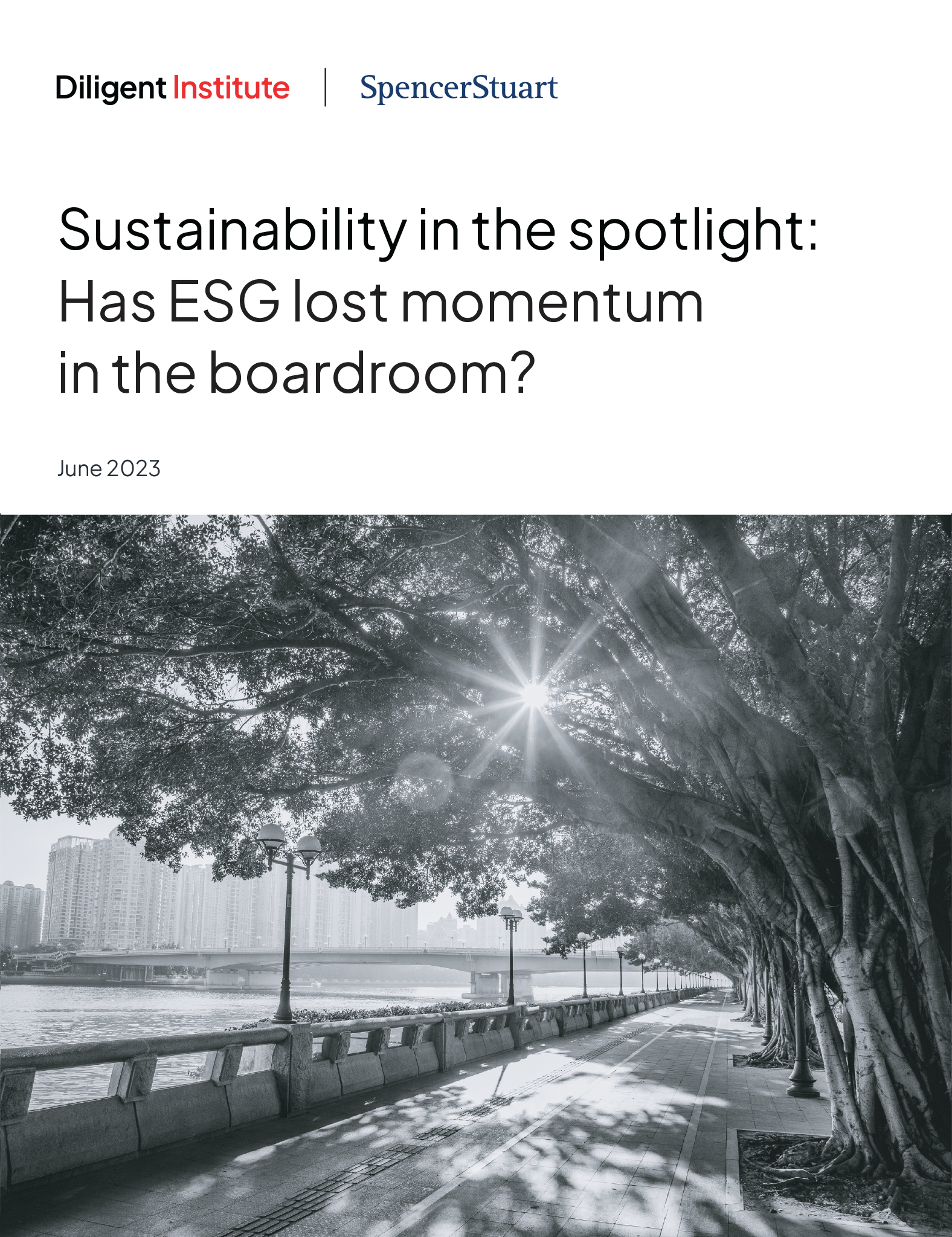Sustainability in the Spotlight: Has ESG Lost Momentum in the Boardroom?
Diligent Institute and Spencer Stuart surveyed nearly 1000 board members on their organizations’ ESG practices and strategy.
Key findings
It’s full steam ahead on ESG for many organizations, according to board members.
60%
are taking extra care to ensure their ESG strategy is properly reflected in annual reports and filings
47%
predict more concerted efforts around ESG or a continuation of their current strategy in the next 5 years
45%
need better insights about how the organization’s ESG goals link to overall strategy
2%
only list public backlash as a major obstacle to progress on their organization’s ESG goals
ESG & DEI
Has ESG lost momentum in the boardroom?
Diligent Institute and Spencer Stuart surveyed nearly 1,000 board members spanning public, private and pre-IPO companies across every industry group to learn more about board ESG structure, oversight and practices around the world.

Do organizations view ESG issues in terms of risk or opportunity?
According to directors, 40% view ESG more in terms of opportunity, 25% view it more in terms of risk, and 35% view ESG as balanced between the two.
Are boards acting in light of ESG regulation?
Over half of the directors we surveyed are enhancing their current ESG disclosures, and 38% are installing monitoring solutions for oversight.
How are ESG issues being integrated?
About 90% of directors indicate that their organizations have incorporated one or more environmental metrics into their businesses, with 87% saying the same for social metrics.

Featured content
[rt_reading_time postfix=”minute read” postfix_singular=”minute read”]
Blogs
Navigating the future with confidence: Unlock your ESG leadership potential
Learn why hundreds of board members are turning to ESG certifications to effectively…
[rt_reading_time postfix=”minute read” postfix_singular=”minute read”]
Inform
The State of ESG Strategy in Irish Boardrooms
Diligent Institute and the Institute of Directors in Ireland surveyed 300 board members…
[rt_reading_time postfix=”minute read” postfix_singular=”minute read”]
Inform
Sustainability in the Spotlight: Board ESG Oversight and Strategy
Diligent Institute and Spencer Stuart surveyed nearly 600 board members on their…
[rt_reading_time postfix=”minute read” postfix_singular=”minute read”]
Certifications
Climate Leadership Certification
Elevate your impact with the Diligent Institute Climate Leadership Certification to…
Contacting Diligent Institute
Want to learn more?
Subscribe to Diligent Institute to hear more about our research, education programs and events. Contact us to answer any questions you have!
